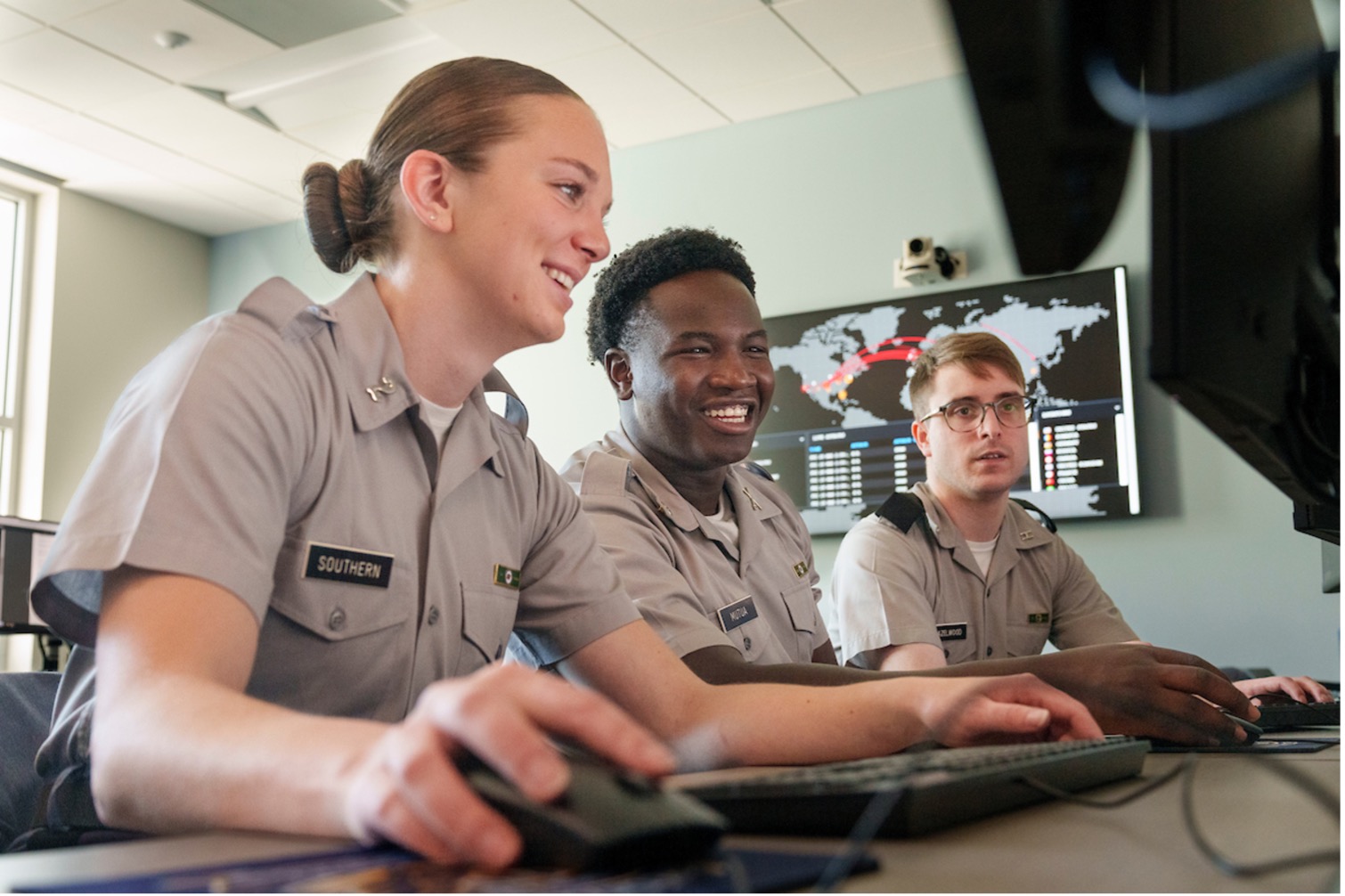The Citadel has long been Angela Angela’s dream college. Hailing from Myanmar, she knew one couldn’t go wrong by studying at the Military College of South Carolina, which U.S. News & World Report has named the Best University in the South. “I always wanted to do something extraordinary,” says the cadet. “The Citadel seemed like the perfect place to do just that.”
She’s not wrong. The Citadel is the perfect place to be extraordinary, offering a classic military college education focused on leadership and academic distinction through the South Carolina Corps of Cadets. Here, admirable characteristics are nurtured through a commitment to honor, duty and respect.
Honor is complying with the code of The Citadel, not to lie, cheat, or steal, nor tolerate those who do. Duty, on the other hand, means accepting any responsibilities assigned and accomplishing them, whether they be your own or others. Respect is to treat people with dignity and worth, eliminating any form of prejudice, discrimination, or harassment. By embracing these principles for four years, expect to spend the rest of your life guided by a strong moral code.
This foundation is complemented by a strong emphasis on developing leadership skills, which is embedded into every course and curriculum at The Citadel. Being able to call the shots may be crucial to thrive in a military setting, but it is also a key competency across professional sectors. This is why the college offers a range of academically rigorous programmes across its six schools and departments. Each instils critical and creative thinking through unique opportunities that pull cadets out of their comfort zone.

Besides the Swain Family School of Science and Mathematics and the School of Engineering, The Citadel is also home to the Tommy and Victoria Baker School of Business, School of Humanities and Social Sciences, and Zucker Family School of Education. Source: The Citadel
Alex Stensland, a physics graduate from the Swain Family School of Science and Mathematics, aimed to advance nanotechnology during his studies. He ended up developing a method for producing nanometer-scale films — used in products like sunglasses and rearview mirrors — that can change to multiple colours, unlike traditional films that only shift to one. “In industry, these films can cost millions,” he says. “Our cost is around US$300 to US$400.”
His work on electrochromism earned him second place in the South Carolina Academy of Sciences Undergraduate Platform Award in the oral chemistry division. Stensland credits his accomplishment to The Citadel’s collaborative environment. “We work one-on-one with the professors all day,” he said. “And our physics department is big enough to have resources for us to pursue our research projects and academic interests.”
Cadet Roman Khayat, a student from the Department of Electrical and Computer Engineering, is equally grateful to his educators. “I enjoy the fact that the professors really care about you learning and knowing and walking away with good information that you’re going to be able to use,” he says. “Some schools focus a lot on theory, or the teachers are more focused on their own research than the actual classes, so The Citadel itself as a teaching college is truly making sure the students learn what they need to know.”

Cadets live on campus for four years in military barracks, which strengthens the bonds formed together and leads to friendships that last a lifetime. Source: The Citadel
This commitment to hands-on learning culminated in Khayat’s senior capstone project, a collaboration with three classmates to develop a network-establishment emergency drone system. Their innovative design — a self-expanding, self-healing Wi-Fi network using drones as network bridges — aims to transform emergency response communications.
Throughout the project, he gained valuable knowledge from his teammates. “I’ve learned quite a bit from Andrew about Python programming and scripting and information about Linux,” he says. “And what I learned from Randall and Jacob helped me understand how mesh networks operated.”
Indeed, collaboration like this produces innovative solutions. It also builds a strong camaraderie among cadets. As a member of the Corps of Cadets, it’s hard not to develop a sense of trust, respect, and shared purpose that lasts a lifetime. Living on campus for four years in military barracks only strengthens this bond.
The structure provides a consistent and supportive environment centred around the four pillars that define The Citadel experience: academics, military, fitness, and character. Together, these elements shape cadets’ personal and professional growth — reinforcing the dedication and resilience needed for a life of leadership. This is why Chung Chih Yen is eternally grateful to the exchange programme that brought him here from Kaohsiung, Taiwan.

Chung Chih Yen. Source: The Citadel
“There are several ways to approach leadership in this school,” he says. “We have the Fourth Class System as well as initiatives like Leadership Training Exercise on how to be a leader and what a leader is. The school also provides other special training such as Bond Volunteer Aspirants, Junior Sword Arch, drill training, and lectures on Principle Leadership Skills to make us better people overall.”
After graduation, Yen plans to fully leverage these competencies in the Taiwanese Air Force with hopes of becoming a pilot. “I want to dedicate my career to the safety of our airspace,” he says. “I hope I can use both the leadership skills and academic knowledge I developed here to be a better officer and assist our military.”
Follow The Citadel on Facebook, Instagram, LinkedIn, X, and YouTube











